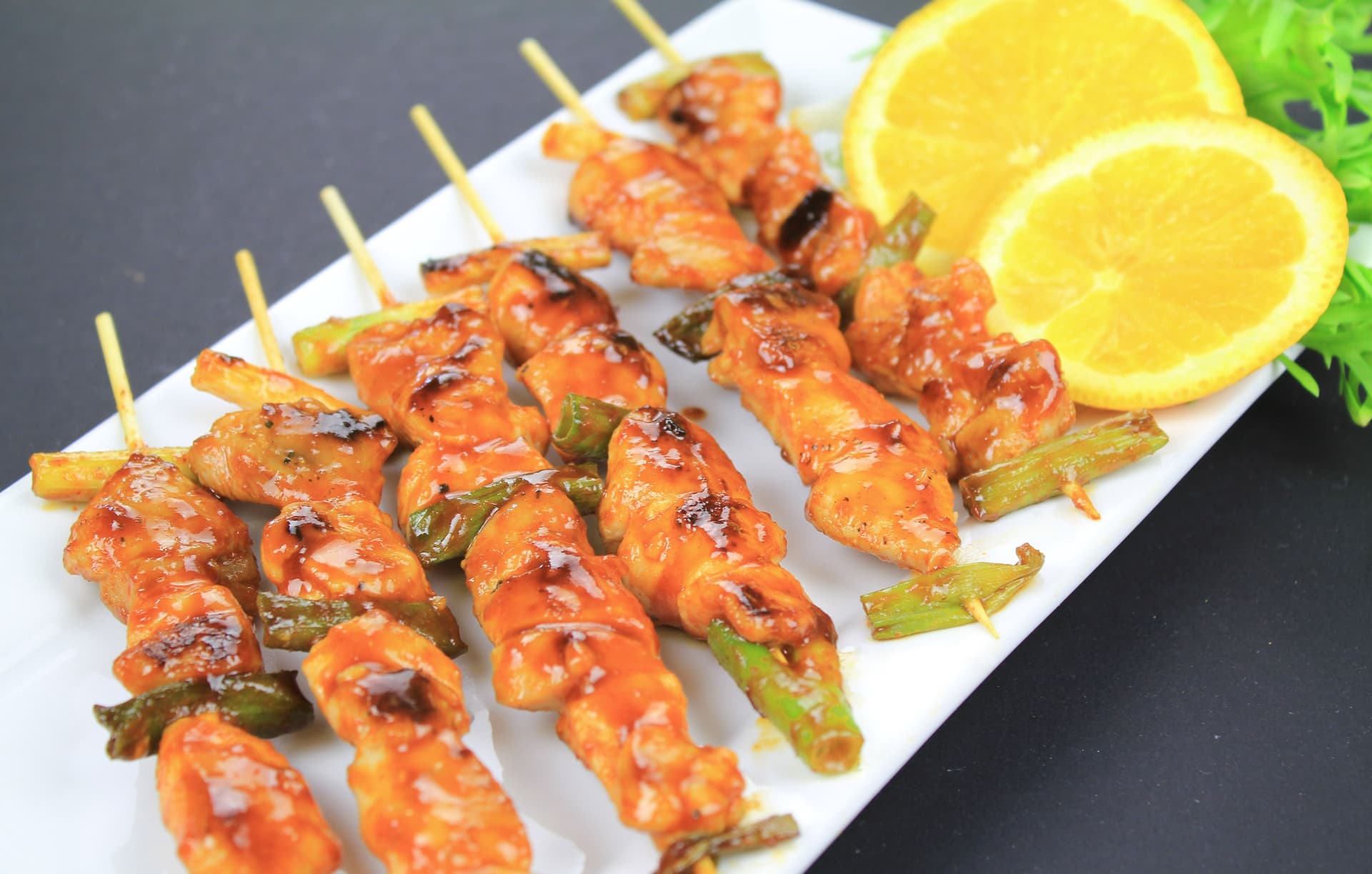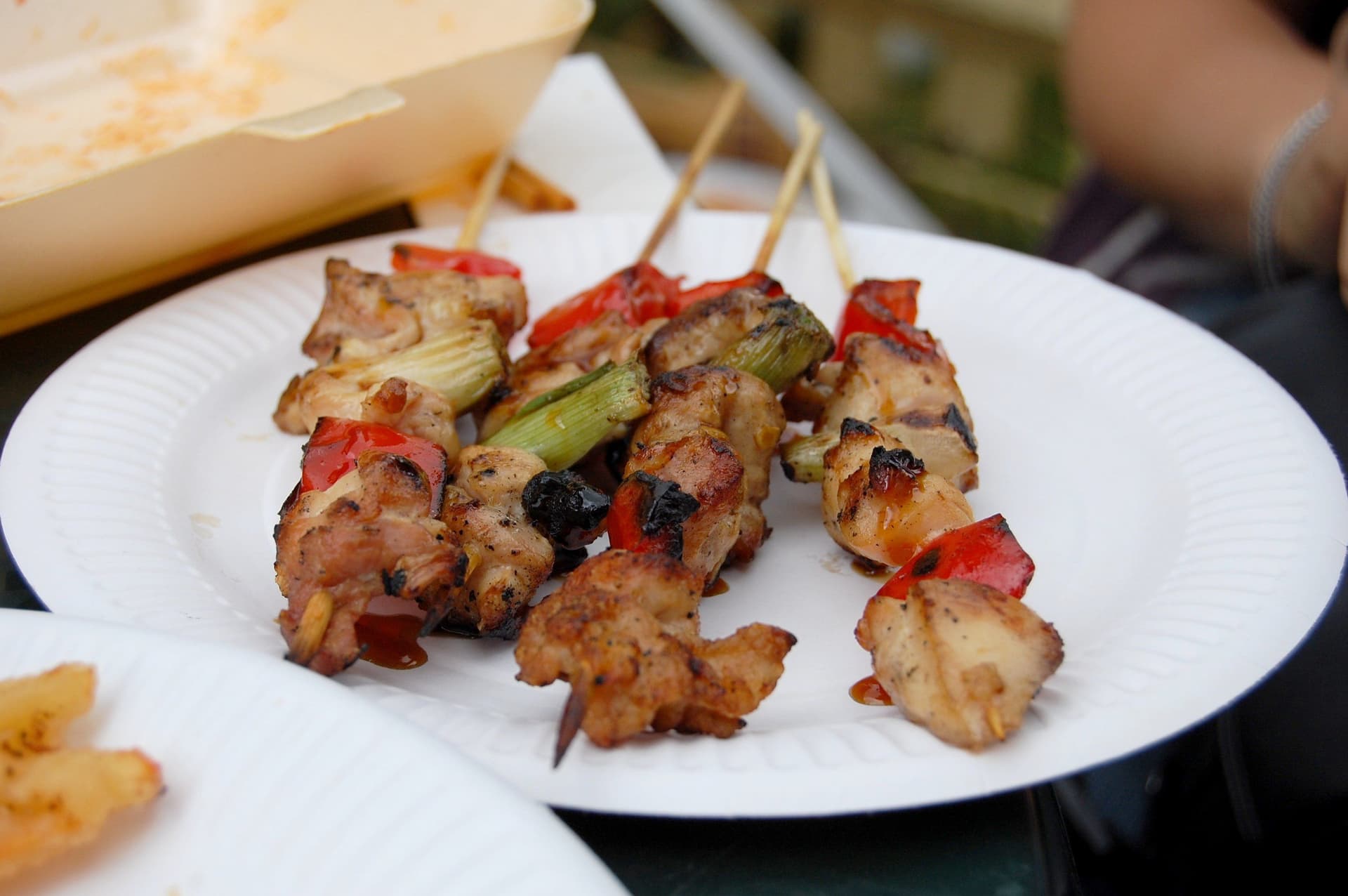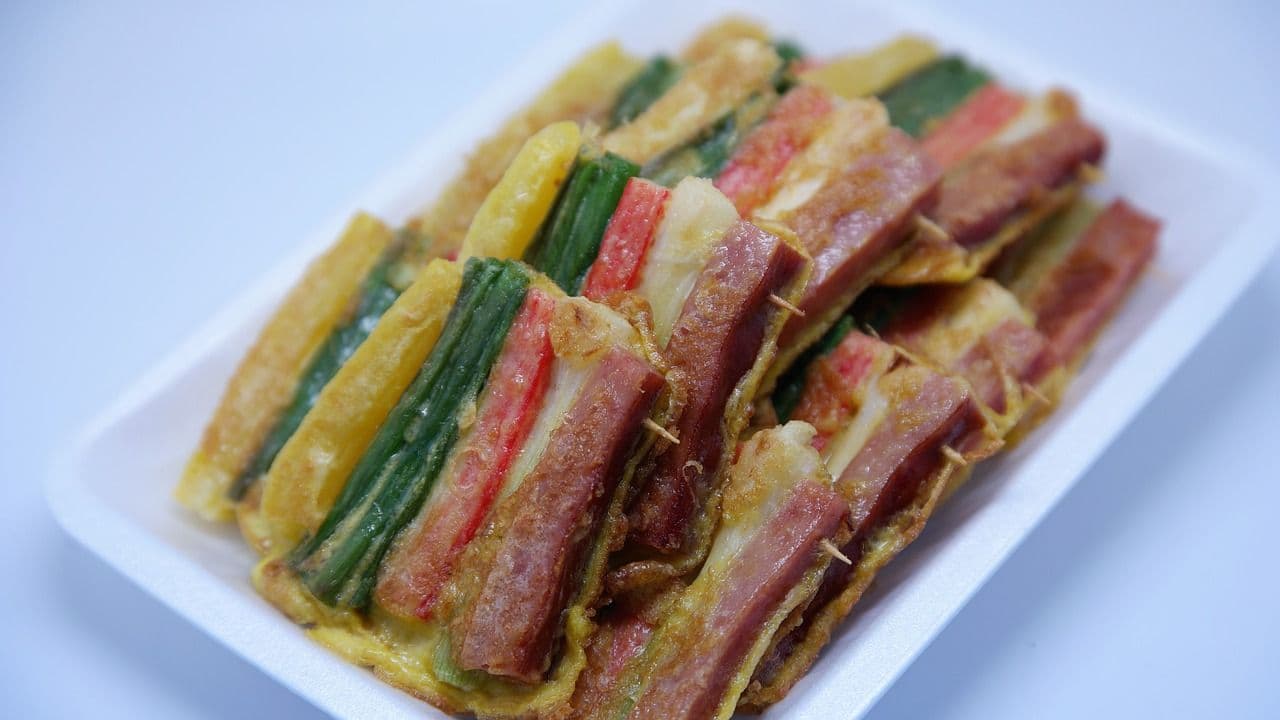Korean Skewers With Cocktails And Mocktails To Serve; Tips Inside
The savoury and slightly sweet-tasting profile of Korean skewers, or "tteok-kkochi," makes them a popular street snack in Korea. Usually, the skewers contain chunks of meat— pork or chicken—marinated in a flavourful sauce consisting of soy sauce, sesame oil, ginger, garlic, and a small amount of sugar. The sugar counterbalances the umami flavour that the marinade adds with a hint of sweetness.
The skewers are frequently cooked, with the inside remaining moist and soft while the outside caramelises and takes on a smoky, somewhat crispy quality. Sesame seeds and green onions lend a nutty note to the dish, enhancing its overall flavour. These skewers provide a blend of savoury, sweet, and smoky tastes when served sizzling. Korean skewers are a popular appetiser or snack because of their robust yet well-balanced flavour, which goes well with mocktails or cocktails.
5 Tips To Pair Korean Skewers With Cocktails and Mocktails

Balance Sweet And Savory Flavours
Cocktails that highlight the contrast between acidity and richness go very well with Korean skewers because of their sweet, savoury, and somewhat smoky flavour. Because it adds a charred flavour and balances the soy-based marinade on the skewers, a whisky sour works nicely. Measure out 15 ml of whisky, 15 ml of lemon juice and 10 ml of simple syrup. Shake well with ice and strain into a glass. The whisky gives a rich flavour that accentuates the aromas of the grilled food, while the lemon balances the skewers' sweetness.
Go For Light Cocktails
When paired with Korean skewers, light, crisp drinks work well because they bring out the smoky grilled flavours. For this combo, a traditional gin and tonic is well-suited. The drink provides a balance by cutting through the richness of the skewers with its bitter and fizzy properties. Make this drink by mixing 10 ml tonic water, ice, and 15 ml gin. Garnish with a lime slice. While the botanical notes in the gin add a fragrant character that goes well with the grilled meat, the tonic's crisp fizz lifts the texture.

Use Herbal Elements
Mocktails with herbal ingredients have a distinctive, fragrant aroma that enhances the flavour of Korean skewers. The herbaceous and citrussy flavours of a basil lemonade provide a contrast to the richness of the meat, making it a good choice for serving with grilled skewers. A rosemary spritz mocktail might also be a non-alcoholic option. Add 30 ml lemon juice, 30 ml club soda, and 15 ml rosemary syrup. Garnish with a rosemary sprig. This mocktail is nice since the grilled, savoury flavour of the skewers is enhanced by the aromatic rosemary and the fizziness of the soda water.
Introduce Spice
A spicy drink is a well-planned option if you're searching for a match that will add some spice to the robust flavours of Korean skewers. A jalapeño mocktail is a good non-alcoholic alternative. Add 10 ml of sparkling water, 20 ml of jalapeño syrup, and 15 ml of lime juice. Garnish with a lime wheel. The lime's acidity offers a balance, and the jalapeño's spice improves the skewers' taste. Both beverages add a degree of spiciness that enhances the rich profile of the skewers.

Incorporate Citrusy Or Fruity Cocktails
Another approach to counterbalance the rich, savoury flavours of Korean skewers is with fruity cocktails. The tropical fruitiness of the strawberry goes well with the grilled steak; making a strawberry mojito cocktail is a good idea. 15 ml white rum, 15 ml strawberry syrup, 20 ml lime juice, and 20 ml soda water are combined to form this drink. Berry slices are added as a garnish. The acidity of the lime counterbalances the richness of the meat, while the sweetness of the strawberry adds berry notes.
Use fresh ingredients for flavour, such as fruits and herbs, to make cocktails at home with ease. Time is saved by using premade mixers and simple syrups. Prepare ice and use honey or agave to regulate sweetness. For presentation, add garnishes like mint, citrus segments, or herbs after giving it a good shake or mix.
Drink Responsibly. This communication is for audiences above the age of 25.



